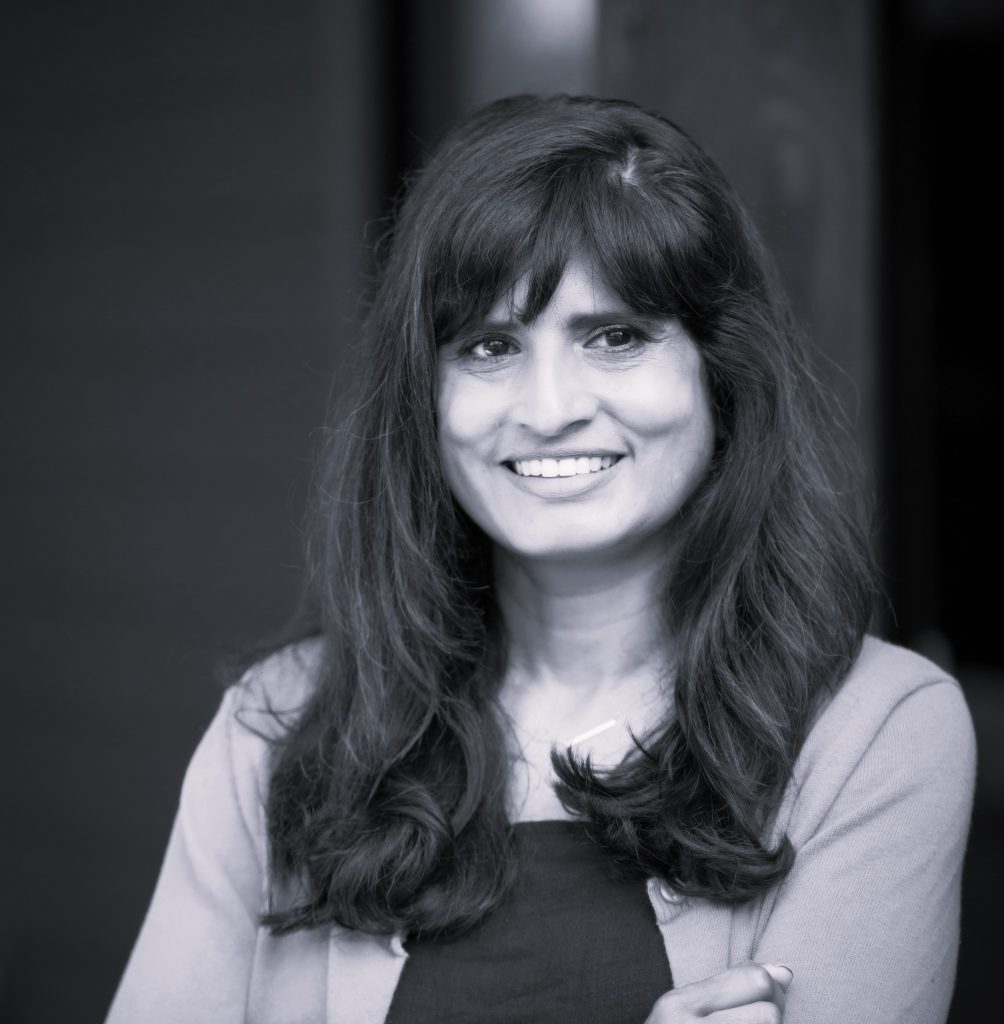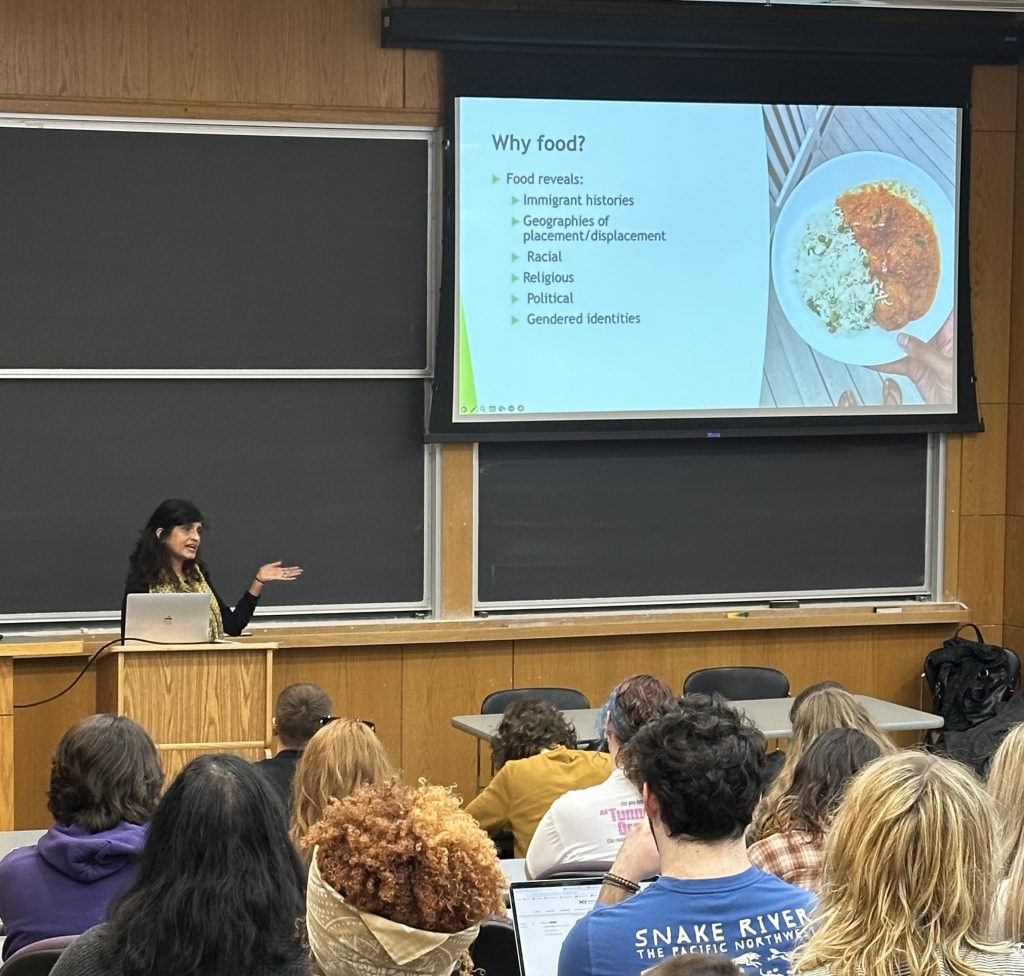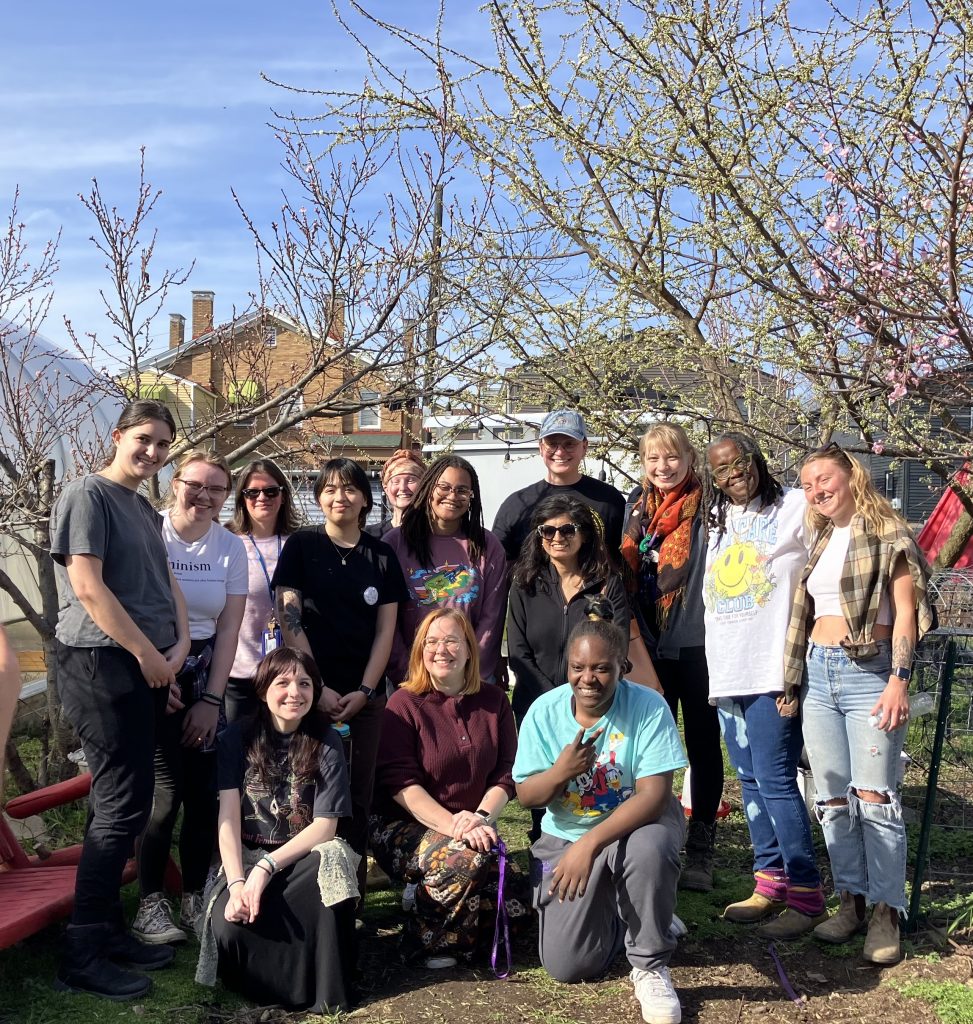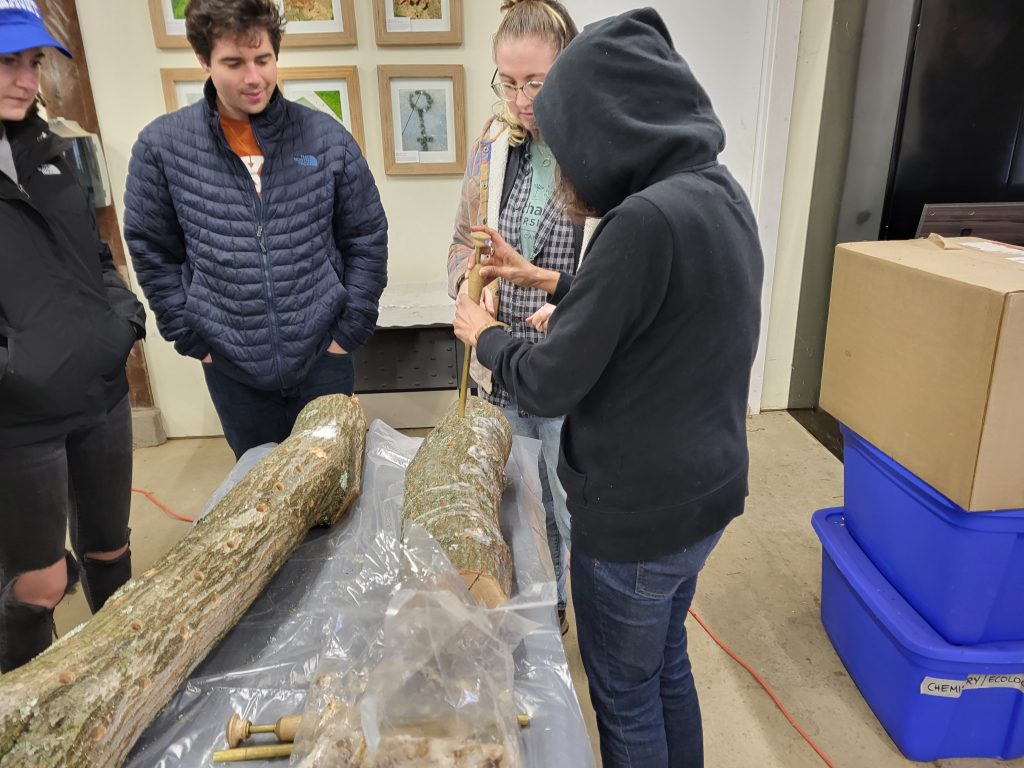
Farha Ternikar is Professor of Sociology at Carroll College of Arts & Sciences at LeMoyne College, Syracuse, NY.
Dr. Ternikar was elected to the ASFS board in 2022 and is one of the principal investigators for the $103,000 grant awarded by the Mellon Foundation to the ASFS for work on food, race, and the humanities.
What drew you to being a part of the Association for the Study of Food and Society?
I was introduced to ASFS through sociologist Alice Julier. We were both trained in sociology of gender and when she started working on food, I followed her work. She introduced me to several intersectional food studies scholars including Arlene Avakian, Meredith Abaraca, and Psyche Williams-Forson.
Coincidentally, I attended Feast and Famine at NYU a few times, and met Megan Elias there as well.

Ternikar gives a keynote lecture on Muslim American women and Culinary Placemaking, the Women’s Institute at Chatham University, February 21, 2024
Your work sits at the intersection of social inequality, gender and feminist theory, and food – how do you draw on these different areas?
My current work is interested in how intersectional feminist food studies can decenter the Global North both in terms of theoretical framework but also in terms of citation politics. Transnational feminist theory has been absent in much of the early scholarship on food and gender, and is necessary to “shift the center” away from western hegemony in the future of critical feminist food studies. As we see critical feminist food studies emerge, we have exciting opportunities to decolonize the field but also to engage in more intersectional and transnational work that takes a more political and critical approach to studying race, class, gender, and food.
What advice would you give early career scholars looking to do work across different fields of study?
The future of food studies is interdisciplinary, and though most food scholars have a “home” discipline such as sociology or history, it’s important for junior scholars to be open to interdisciplinary and intersectional work because this will both add depth but also add to a more critical understanding of food studies.
Can you tell us about your experience as a Visiting Scholar-in-Residence and Rachel Carson scholar-in-residence at Chatham University? What does being a scholar-in–residence entail?
Yes, this was an amazing experience both because the Falk campus at Chatham is a working farm campus where students and faculty are in a sustainable environment on farmland, but also the program fuses both practical aspects of farming and food production with theoretical aspects of food studies. While I was there in residence for a month, I lived in an apartment on the farm campus and had time to begin to write my manuscript on Msulim American women and biryani, give guest lectures, attend graduate seminar courses, cook chicken biryani with students, and even take a mushroom course!
It was truly an incredible experience. During that time, I also gave a public talk at the Women’s Institute on my next book manuscript.

Your book Intersectionality in the Muslim South Asian-American Middle Class: Lifestyle Consumption beyond Halal and Hijab examines how South Asian Muslim American women negotiate different identities, using food and clothing consumption as a lens. How did focusing on clothing and food allow you to investigate this phenomenon?
In many ways studying food along with clothing had many parallels because like food, clothing is also coded with status, class, ethnicity, and gender. In particular this book uses both halal food and modest fashion as ways to understand how consumption is an important aspect of the lives of Muslim women. Muslim women use food to create community (often through recipes, cooking but even shopping at halal markets), but similarly Muslim women’s modest fashion is a way to indicate religiosity but also ethnic and immigrant identities.

Can you tell us about the ASFS committees you are on, and what work they do?
I have primarily been on the Racial Justice in Food Studies grant committee since 2023 with Beth Forrest, Megan Elias, and Charlotte Biltekoff. On this, I have been working as a research mentor for the grant recipients. I am also planning a roundtable featuring the racial justice pedagogy recipients. Paolina Lu serves as the grant coordinator/administrator. These grants are funded by the Mellon Foundation
In addition to the ASFS committee, I am informally working with BIPOC faculty and graduate students since 2022 where we held the first BIPOC lunch in Boston University which was organized by Paolina Lu with support from Megan Elias.
You are one of the editors of the forthcoming book Transnational Culinaria: Women of Color and Feminist Food Studies – can you tell us what the book is about, and what it hopes to bring to Food Studies?
Edited with Stephanie Evans, Janaka Lewis and featuring a forward from Psyche William Forson, Transnational Culinaria bridges gaps in transnational, Black feminist, and intersectional paradigms and centers marginalized voices in food studies. This volume gathers scholarship by women of color in food and wellness studies but also challenges traditional ways of making knowledge in culinary scholarship. This edited volume attends to location(s), occupation, race, caste, class, settler-colonialism, and sexuality (in addition to gender) to create important theoretical interventions in extant scholarship. By focusing on purposeful, collective reading across disciplines, contributors build on Psyche Williams-Forson’s foundational texts in intersectional feminist food studies and Desiree Lewis’ work in transnational food studies. The contributing authors present theoretical and methodological insights about new approaches to critical feminist food studies that engage with political and social issues not limited to food studies in the global north.
Do you have a favorite brunch food?
I’m basic – just a plain English muffin with butter and jam.

